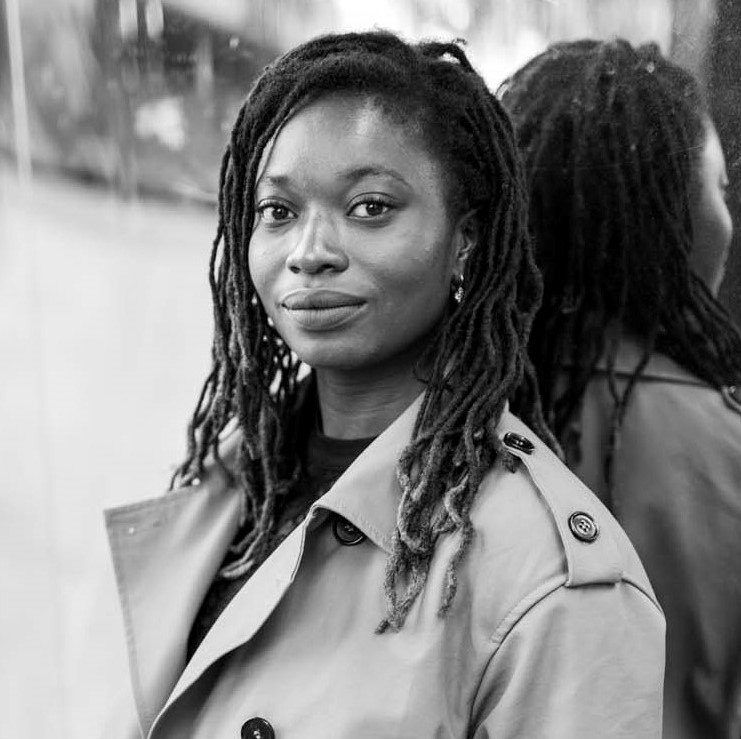Nicole Rafiki

3 contemporary art curators residing in Norway were awarded to take part in CIMAM 2020 StayHome Curatorial Online Residency and to attend the CIMAM 2021 Annual Conference in Poland (November 5 – 7, 2021).
This unprecedented curatorial residency project, funded by OCA – Office for Contemporary Art Norway, in an exclusively online format to adapt and add value to the CIMAM Travel Grant Program, given the new virtual scenario to which the COVID-19 pandemic led us.
The call for applications was addressed to young contemporary art museum directors, and curators working institutionally or independently residing in Norway, with priority to professionals from Sámi or from diaspora backgrounds.
The grant aimed to support their curatorial and research development and to make successful candidates more widely networked and empowered by the mentoring of CIMAM board members. In this process, the mentor Malgorzata Ludwisiak, Ph.D. Independent Art Critic and Curator, Warsaw, and Nicole have had a great exchange, and both the mentor and the grantee have been able to benefit a lot from their conversations.
More information related to the grantee and her written report is provided below.
About Nicole Rafiki
In my work, I re-imagine and challenge the stereotypical depiction of spaces, contexts and the people who are affected by Global Migration.
“I am currently building Rafiki Art Initiatives (RAI) organisational structure, skills and programming. I will research how to further develop and adapt a collective art project that we initiated in the summer of 2020, following the death of George Floyd , to the 10 year memorial of the twin terror attacks in Norway on 22 July 2011”
My curatorial approach is closely adjoined to my artistic practice, in which I engage in collaborative practices as an active act of creating and imagining post colonial and post conflict reconciliation as an African in the Diaspora. Mimicking the vagrant state of a migrant, this is a nonlinear process of trial, error and constant research, involving a diversity of projects. Merging my academic and professional background in social work, journalism and communication, I actively develop concepts, produce and curate transdisciplinary works with professional artists, non-professionals and institutions. Being a part of a network like CIMAM and having access to this grant scheme will allow me to work on my upcoming collective project evolving around the 10 year commemoration of the 22.July twin terrorist attacks in Norway. This project is a continuation of the "Good mourning" project that I initiated in the summer of 2020, dealing with systemic racism. I will also benefit greatly from the input and mentoring from CIMAM.
CIMAM 2020 StayHome Curatorial Online. Written report by Nicole Rafiki
Art has been used as a tool of preservation and healing for centuries. Now, more than ever before is time to use the curative effects of art for the benefit of larger groups of society that have been routinely excluded. That is one way I could summarise the purpose of my research and the principal outcome of my residency.
I applied for the CIMAM curatorial online residency to benefit from the mentorship of an experienced colleague while working on my upcoming collective project evolving around the 10-year commemoration of the 22 July twin terrorist attacks in Norway. The “Good Mourning” project explores how collective art projects involving artists and non-artists can function as a claim for artistic agency while creating ownership for a diverse audience. This project is a continuation of the "Good mourning" project that I initiated in the summer of 2020, dealing with systemic racism.
Through our conversations, Malgorzata and I had in-depth discussions about the ongoing development of my method. She helped me define thoughts about the project on a practical level, but also my long term goals specifically. Exploring the curative or therapeutic aspect of art is a lifelong commitment. My mentor pointed to the paradox of the current upper middle class populations of the western hemisphere having to face issues that were previously reserved for the low income citizens of the Global South. The West is currently experiencing many crises simultaneously, including migration, ecological, economic, and the global pandemic. Equally alarming is the rise of Right Wing extremism. In the last few months during the pandemic, we have been bombarded with information about the downfall of the world as we know it. It almost seems as if we might not be able to go on living the way we did before.
I believe that society is in need of therapy. We need to create a new set of patterns for an effective and sustainable cohabitation of diverse communities with multiple, complex issues at hand. Of course, multiple issues also imply the possibility of multiple solutions. I am more interested in exploring how art can be in the latter category.
Whether it is about decolonizing the art scene, migration, or post-conflict reconciliation; we all need new ways of healing. I look at this method as something that I want to continuously develop and rearrange. It is a methodology that will continuously grow and be fitted into different contexts. It became clear that this framework will be the starting point for many different projects, both individual and collective.